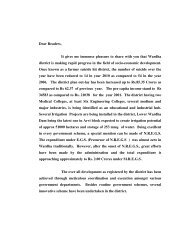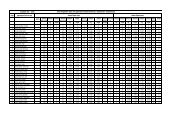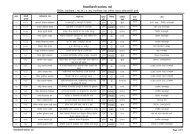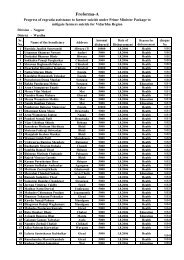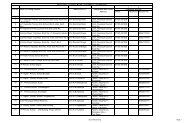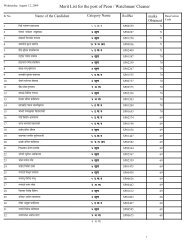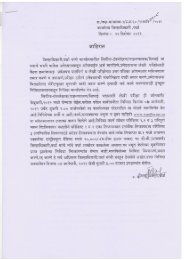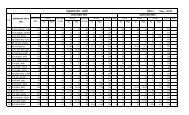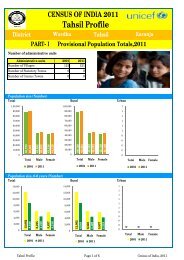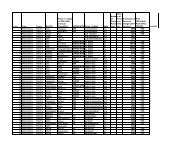Create successful ePaper yourself
Turn your PDF publications into a flip-book with our unique Google optimized e-Paper software.
f. Your refrigerator will keep foods cool for about four hours without power if it is left<br />
unopened. Add block or dry ice to your refrigerator if the electricity will be off longer than<br />
four hours.<br />
Managing water supplies<br />
Water is critical for survival. Plan to have about one gallon of water per person per day<br />
for drinking, cooking and personal hygiene. You may need more for medical emergencies.<br />
• Allow people to drink according to their need. The average person should drink<br />
between two and two-and-one-half litres of water or other liquids per day, but many<br />
people need more. This will depend on age, physical activity, physical condition<br />
and time of year.<br />
• Never ration water unless ordered to do so by authorities. Drink the amount you<br />
need today and try to find more for tomorrow. Under no circumstances should a<br />
person drink less than one litres of water each day. You can minimize the amount of<br />
water your body needs by reducing activity and staying cool.<br />
• Drink water that you know is not contaminated first. If necessary, suspicious water,<br />
such as cloudy water from regular faucets or muddy water from streams or ponds,<br />
can be used after it has been treated. If water treatment is not possible, put off<br />
drinking suspicious water as long as possible, but do not become dehydrated.<br />
• In addition to stored water, other sources include:<br />
� Melted ice cubes<br />
� Water drained from the water heater faucet, if the water heater has<br />
not been damaged<br />
� Water dipped from the flush tanks (not the bowls) of home<br />
toilets. Bowl water can be used for pets<br />
� Liquids from canned goods such as fruit and vegetable juices<br />
• Carbonated beverages do not meet drinking-water requirements. Caffeinated drinks<br />
and alcohol dehydrate the body, which increases the need for drinking water.<br />
• If water pipes are damaged or if city authorities advise you, turn off the main water<br />
valves to prevent water from draining away in case the water main breaks.<br />
� The pipes will be full of water when the main valve is closed<br />
� To use this water, turn on the faucet at the highest point in your<br />
house (which lets air into the system)<br />
� Then draw water, as needed, from the lowest point in your house,<br />
either a faucet or the hot water tank<br />
• Unsafe water sources include:<br />
� Radiators<br />
� Hot water boilers (home heating system)<br />
� Water beds (fungicides added to the water or chemicals in the vinyl<br />
may make water unsafe to use)<br />
� Swimming pools and spas (chemicals used in them to kill germs are<br />
too concentrated for safe drinking, but can be used for personal<br />
hygiene, cleaning and related uses)<br />
69



